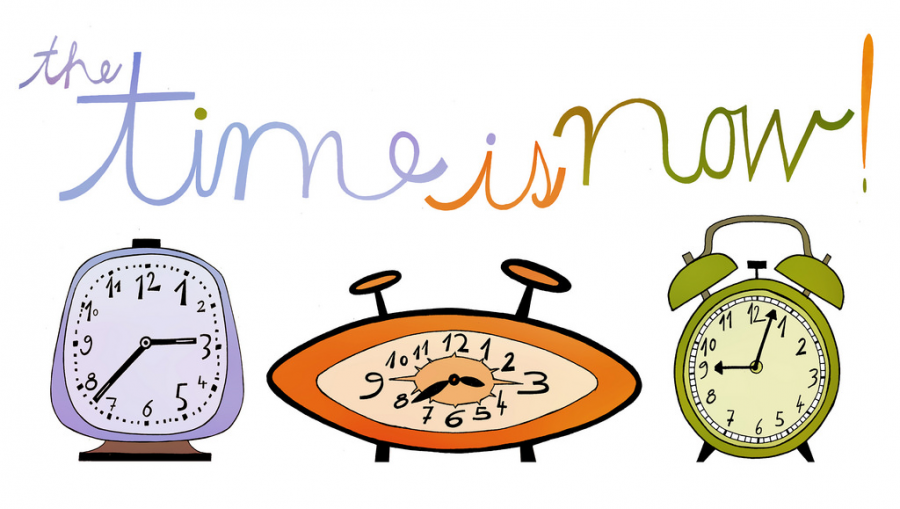Procrastination. I don’t know about you, but whenever I hear that word I get a series of traumatic flashbacks from all my nights that have ended at 2 a.m. followed by mornings that have started back up at 6.
I’m what you might call an avid procrastinator. I procrastinate with passion and with ease, with class and glamour. Think about that for a minute. Did that sound odd? Good, because that’s definitely not an accurate painting of the situation. In fact, it looks a lot more like hair-pulling, pacing, nail-biting, and having more servings of caffeine than a healthy amount.
But believe it or not, I, like many others of my kind, wasn’t always like this. In fact, until recently, I grew up to practice a fairly healthy level of procrastination. One that left only a slight jitter in my veins (without the help of caffeine), and one that ended up getting things done before the early hours of the next morning with surprisingly good quality.
Now, some of you must be thinking, “Starting your homework that late? How do you live with yourself?” Well, whenever I got the slightest thought to possibly start any work, I just thought, “As time passes, one become wiser, which means if you start this later, you’ll have more knowledge to contribute to the assignment.”
Turns out there’s a sliver of truth to that statement. It’s not so much about having more knowledge to contribute, rather than the idea of letting something simmer in the back of your mind before you let it come to frontburner. According to organizational psychologist Adam Grant in a TED Talk, “Moderate procrastinators are 16 percent more creative [than heavy or non-procrastinators].” According to him, that’s because while you’re procrastinating, the concept is still active in your mind, which gives you time to think about a lot of different possibilities and combinations. That way, when you’re finally ready to come back to to the task, you’ve given yourself time to process the information, and can actually do something effective.
Although, there’s a reason moderate procrastinators than those who procrastinate heavily and not at all. “People who wait until the last minute are too busy goofing off, [and] they don’t have any new ideas. On the flip side, people who race in are in such a frenzy of anxiety that they don’t have any original thoughts either,” Grant said in his TED Talk.
Procrastinating and its benefits seems like an unconventional topic to talk about the week of finals what with all the cramming, but there’s a message for all of us. To the no-crastinators: Start a couple hours later. To the heavy procrastinators: Start a couple hours earlier. Being in such a fast-paced environment with minute to minute schedules doesn’t always allow us the time to think and to process without having another new concept thrown in our faces. Therefore, it’s important to allot yourself that time. Procrastination isn’t totally negative, when practiced in a smart way.





Annonymos • Jan 12, 2017 at 8:32 am
I have to admit, This is an AWESOME article, and brings up and idea I truly never had. Even though I have not thought of it, I do have a positive procrastination strategy which I use. You have a 3 paragraph paper (20 sentences total), and you also want to have a friend over. You call your friend over, but it takes him a half an hour to get to your house. What do you do during that time? Because you have absolutely nothing to do for the next 30 minutes, you might as well fill in a paragraph or 2 of that homework while you are waiting so once your friend leaves at 8:00 and you still have that paper for tomorrow, you now only have 1-2 paragraphs left before you go to bed instead of all 3, leaving you sound asleep by the latest 9:30 and not 11:00. In a shorter explanation, if you have absolutely nothing to do to amuse yourself and nothing to do about it, you might as well squeeze in a little homework. You may even finish it and avoid your stressful stage of procrastination all together! (^_^)
ur favorite euphonium player • Jan 11, 2017 at 9:06 pm
it’s ironic that i’m procrastinating doing my mathxl reading this article
Chroma • Jan 11, 2017 at 8:49 am
This was a really neat article :^)
I would, however, like to comment on one statement made by the author, being “…and having more servings of caffeine than a healthy amount.” Believe it or not, in 2015, a health panel committee came to the conclusion that 3-5 standard cups of coffee or a similar drink is an helpful amount and consuming at least that much is better than a smaller amount. Even then, there are very negligible health effects until you pass 1000 mg with no tolerance to caffeine from prior consumption.
Source: https://health.gov/dietaryguidelines/2015-scientific-report/10-chapter-5/d5-5.asp